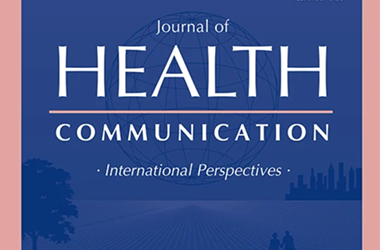Development and Validation of Korean 'COVID-blues' Social Syndrome Sca…
본문
- ABSTRACT
- 연구노트

Ahn, C. H. & Noh, G. Y. (2023). Development and Validation of Korean 'COVID-blues' Social Syndrome Scale. Journal of Health Communication, Online.
ABSTRACT
This study focuses on measuring the effects of COVID-19 on mental health both at cultural and individual levels. Although many COVID-19 studies used previous COVID-19 measurements such as FCV-19S, GAD-7, PHQ-9, DASS-21, CSS, CAS, or CSI, these clinical psychology measurements did not include cultural aspects as suggested by pathogen prevalence hypothesis : Pathogen prevalence argues that psychological responses of collectivists involve clinical response as well as cultural group response, driven by strong collectivism. This study developed new “COVID-blues” scale that measure individual and cultural aspects of COVID-stress in collectivistic society context. Specifically, this study developed and validated 25-items that measure individual loneliness, fear, social anger, and socioeconomic consequences. Results of this study indicated that: (1) COVID-related stress can occur at both the individual and cultural levels, and (2) COVID-blues not only increase fear but also anger; that is, the higher the score on the COVID-blues scale, the higher the fear and anger of each individual. The findings presented robust 25-item multidimensional COVID-blues scale which can be used for conducting future health communication studies using theories such as health belief model, theory of planned behavior, or social cognitive theory in collective countries such as South Korea.
첨부파일
-
Ahn Noh 2023 Covid Blues Scale.pdf (736.4K)
2회 다운로드 | DATE : 2024-11-25 16:02:56